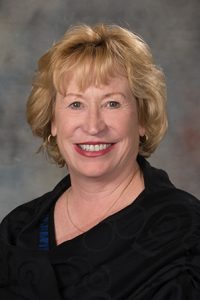State aid to local governments in exchange for cap on taxing authority discussed
The Revenue Committee heard testimony Feb. 2 on a pair of proposals intended to provide property tax relief by capping local government revenue growth while also providing state funds to schools, counties and cities.

Under LB1414, introduced by Elkhorn Sen. Lou Ann Linehan at the request of Gov. Jim Pillen, political subdivisions other than school districts could not exceed their property tax request authority from the prior year, with certain exceptions including a percentage based on real property valuation growth.
Linehan said local property tax collections totaled $1.3 billion over the past six years, outpacing the $1 billion the Legislature has set aside for property tax relief programs over the same period. She said capping the taxing authority of local governments would ensure property tax increases are “reasonable.”
“We have to do something on the spending side,” Linehan said.
In addition to the real growth factor, the bill would allow political subdivisions to exceed their property tax request authority to pay for principal and interest on approved bonds and for repairs to infrastructure damaged by a natural disaster. A majority of voters also could approve an increase at the next regularly scheduled election.
LB1415, introduced by Sen. Robert Dover of Norfolk at the request of the governor, would direct funds currently allocated to the Nebraska Property Tax Incentive Act to school districts, counties and municipalities in exchange for direct property tax relief.
The act, passed by the Legislature in 2020 as part of LB1107, created a refundable income tax credit based on the amount an eligible taxpayer paid in property taxes to their school district during the previous year.
Dover said the program is “unworkable and ridiculous” and that much of the credit amount goes unclaimed. LB1415 would deliver tax relief up front by sending state funds directly to local governments in exchange for reducing the amount of property taxes they collect, he said.
For fiscal year 2024-25, the amount available for disbursement to school districts would be $989.6 million. Counties would receive $437.2 million, and municipalities would receive another $297.1 million.
Mark McHargue testified in support of both bills on behalf of the Nebraska Farm Bureau and several other agricultural organizations. “Front loading” the LB1107 credit would be a more transparent way to deliver property tax relief, he said, but the change must be accompanied by the hard cap on local taxing authority proposed in LB1414.
Also testifying in support of LB1414 was Carter Thiele of the Lincoln Independent Business Association. He said allowing political subdivisions to increase their property tax request by a real growth percentage would protect property owners from dramatic tax increases while still ensuring that those entities can meet their needs.
Angi Burmeister testified in opposition to LB1414 on behalf of the Sarpy County Board of Commissioners. She said the proposed cap, even with a growth factor, would not give the county enough flexibility to meet increasing costs.
Milford Public Schools board member Dave Welsch testified in opposition to LB1415. He said the measure would distribute the Nebraska Property Tax Incentive Act funds based on property valuation, which goes against the program’s original intent to offset the amount of property taxes each Nebraskan actually pays.
The committee took no immediate action on either bill.

